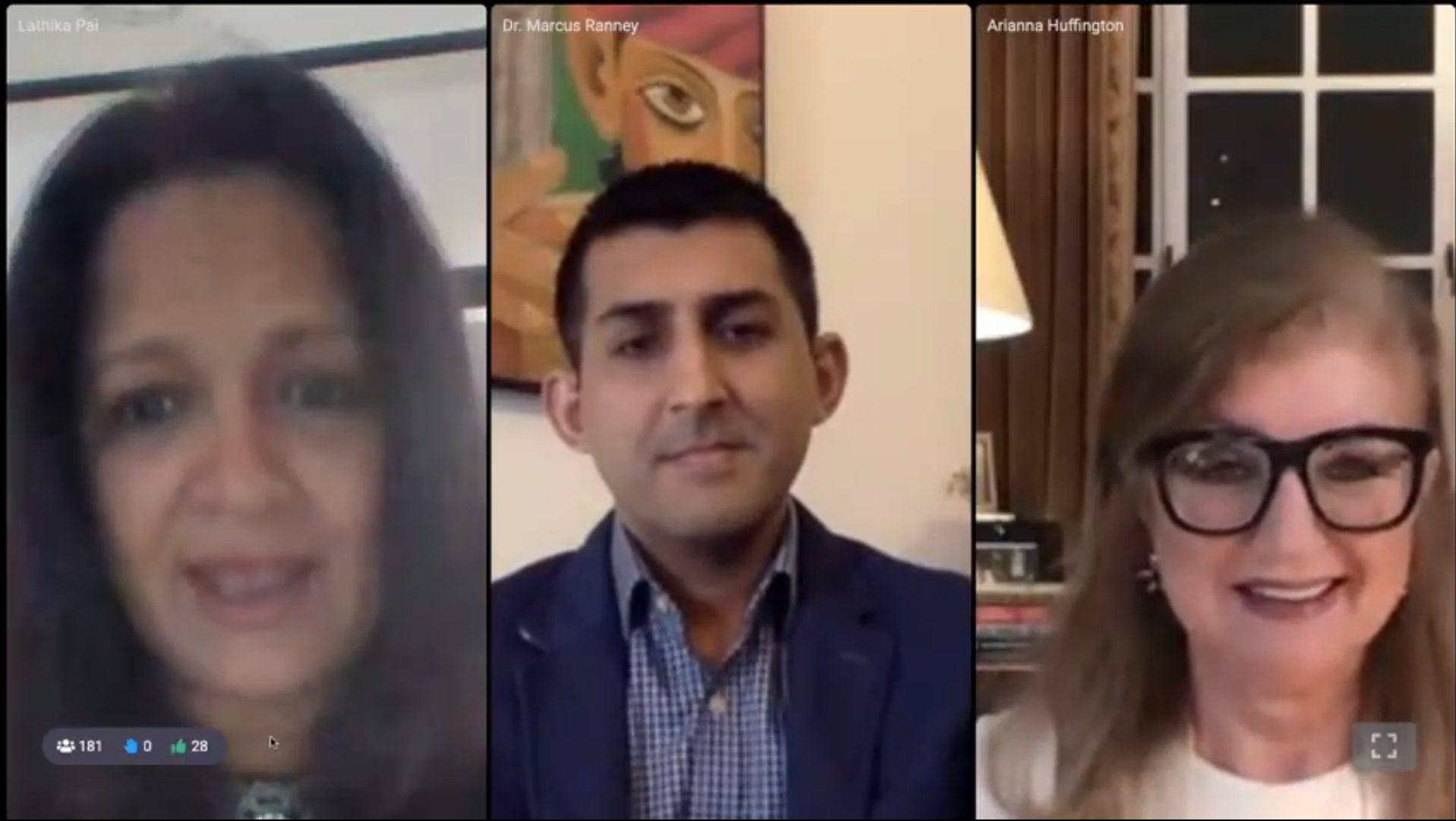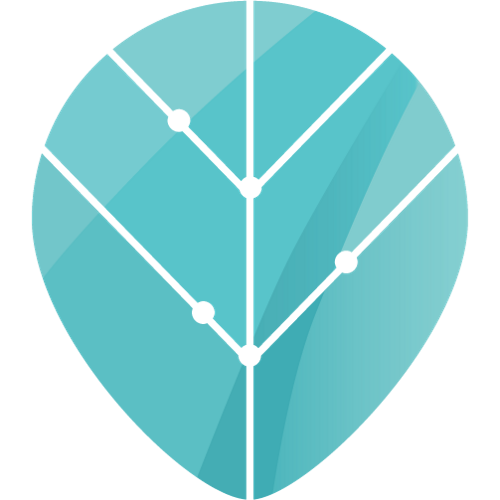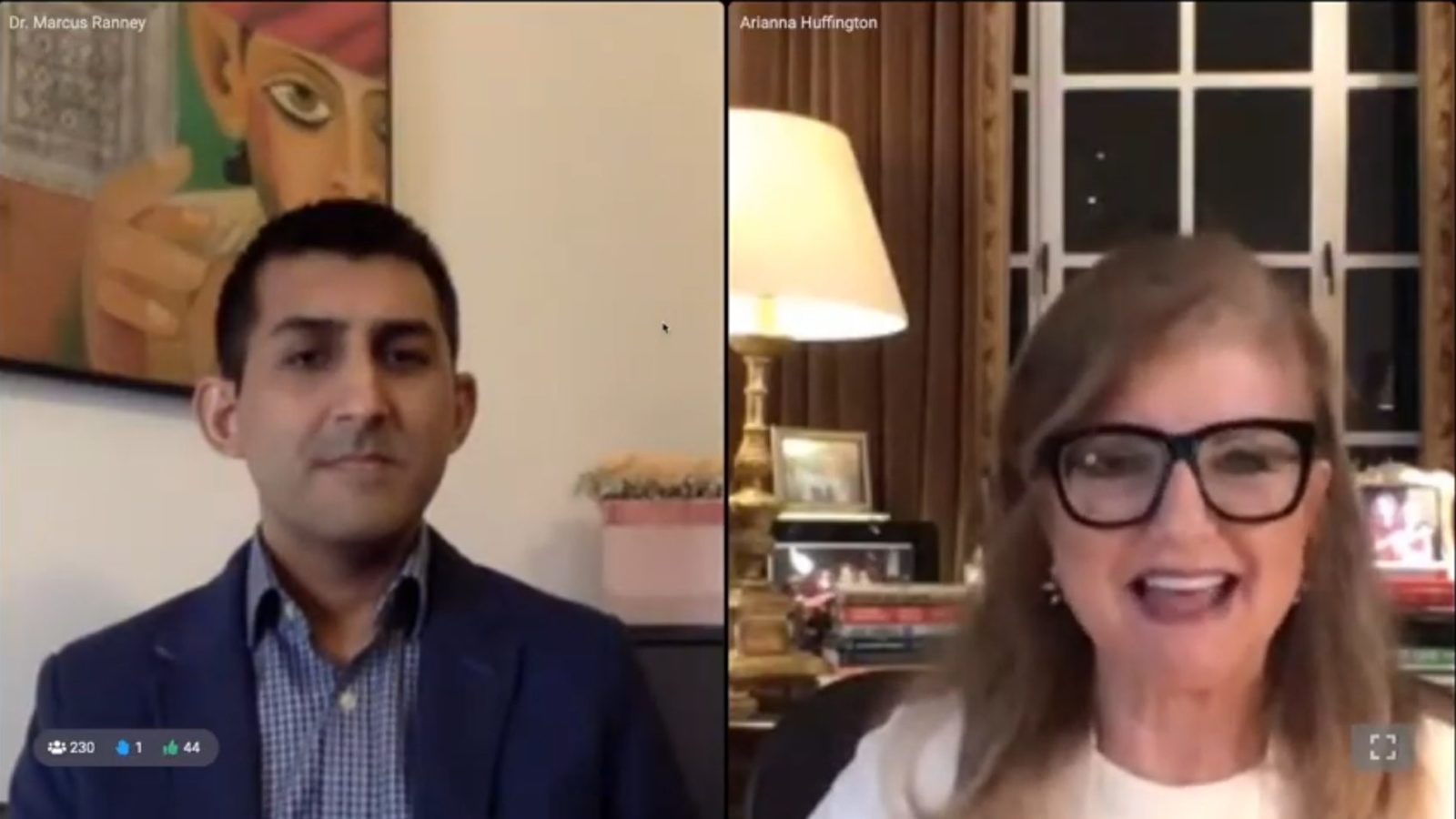Dubbed India’s “largest start-up event for tech entrepreneurs”, the India Internet Day 2020 on 7 and 8 August, organised by TiE Delhi-NCR was forced to go online this year. Addressing the attendees from Los Angeles on Day 2 was Thrive Global’s founder-CEO Arianna Huffington, in a keynote fireside chat chaired by Dr Marcus Ranney, GM, Thrive Global India.
Sharing why she chose India as the first destination outside of the US to launch Thrive Global, Huffington spoke of her first impressions of the country at 17 years of age, studying comparative religion at Visva-Bharati University, Santiniketan. It was ancient Indian wisdom that was her major draw and it is more relevant in “these difficult times of unprecedented uncertainty, fear and anxiety”, she said. “The entire world has a lot to learn from ancient Indian wisdom. Sometimes we don’t value the incredible treasures right in front of us!”
Huffington, who turned 70 this July, talked about how “exciting it is to reinvent ageing”. “I’ve more energy (today) because I’m not wasting it seeking approval, looking over my shoulder to see what everybody is thinking, also because I’m much more grateful about little things, more able to put things in perspective, to remember that life is a dance between making it happen and letting it happen. When I look back at my life, some of the best things that happened, happened, I didn’t make them happen. That gives us the opportunity to exhale.”
“On my desk I’ve a saying by Montaigne: ‘There were many terrible things in my life, but most of them never happened.’ It is good to remind ourselves of that. The only thing we know is what is in front of us.”

Here are three key learnings from the half-hour session:
1. Success does not have to come at the cost of health
“We buy into the belief that in order to succeed, we have to be always on, that we can’t disconnect, refresh or return to the job at hand later,” said Huffington of the stress that we undergo in our pursuit of success.
“In aeroplanes they tell you to put on your own oxygen mask before helping others,” she used an analogy to drive a very important message. “This is for everyone—especially leaders and managers—reframing, going for a daily walk, getting enough sleep, taking care of yourself is not self-indulgence, it is not a luxury, self-care helps in mindset shifts and improves performance and decision making.”
Indeed “conversation around self-care has increasingly become a priority as organisations realise that well-being is the foundation on which performance is built,” agreed Dr Ranney.
The Thrive founder asked leaders to recognise that the Founder myth doesn’t work. It is about “the founder who is always on, never sleeps, never takes care of themselves. There’s a connection between this myth and the decisions being made in order to have a flourishing start-up. No wonder more than ¾ of start-ups fail. All the data and science indicate that the more we connect with our wisdom, the better decisions we make, and the more successful our company will be.”
I wrote 15 books, three of them in my 60s, I launched Huffington Post at 55, and Thrive Global at 66. Think how many years you have ahead of you to launch companies, to make something good happen, but also have fun along the way.
Arianna Huffington
2. Changing our life for the better is possible, one Microstep at a time
Delving into her personal favourite Microsteps, she chose to focus on two things: How we start and end our days. “While technology is a real blessing, we need to set boundaries to our use of tech. My favourite Microstep is about our relationship with our phone. A vast majority start their day by going to their phone before they are even fully awake, before their feet have touched the ground. You don’t know what is waiting for you in the phone, and suddenly your body is flooded with cortisol stress hormone before you are fully awake to deal with it. The Microstep is: Take 60 seconds before you go to your phone, connect with your breath, take conscious deep breaths, or set your intentions for the day. If you don’t have 60 seconds, you don’t have a life!”
“Most people don’t have an end to their day, they stay up handling things. We need to declare an arbitrary end to the day.” One Microstep to try is turning off the phone and charging it outside the bedroom. “Try it for one night a week,” in the beginning suggests this Thriver.
3. Empathy and leadership are synonymous in Covid times
Dr Ranney pointed out the findings of in-house research through Thrive Sciences that show a “rising tide of loneliness, anxiety and stress” as a result of the pandemic. Huffington agreed that regular stress polls show intensification of “what was already a mental health crisis pre-pandemic”, it has become more so “because of uncertainty”. Humans are not used to so much uncertainty, she added. “In India, one of the major causes is financial anxiety, the fear of losing jobs and another one is disconnection from loved ones and loneliness as a result of the growing epidemic of social media and tech addiction which have grown exponentially since the pandemic.”
“Today empathy is the key feature of leadership and being able to build teams during the times when we are not able to be physically together. Leaders have to be their most empathetic and most creative because these qualities are more important than ever.” Recognising that not everything is urgent is important too, otherwise, we risk missing the most essential, warned Huffington.
Thanking her audience, Huffington had a special message for the young: “I wrote 15 books, three of them in my 60s, I launched Huffington Post at 55, and Thrive Global at 66. Think how many years you have ahead of you to launch companies, to make something good happen, but also have fun along the way. Joy is more important than ever. When I was young, I used to think that the most important thing is to get stuff done and be productive, now I realise that being joyful about everything in my life is also important. The more joyful I’m, the more energy I’ve.”


